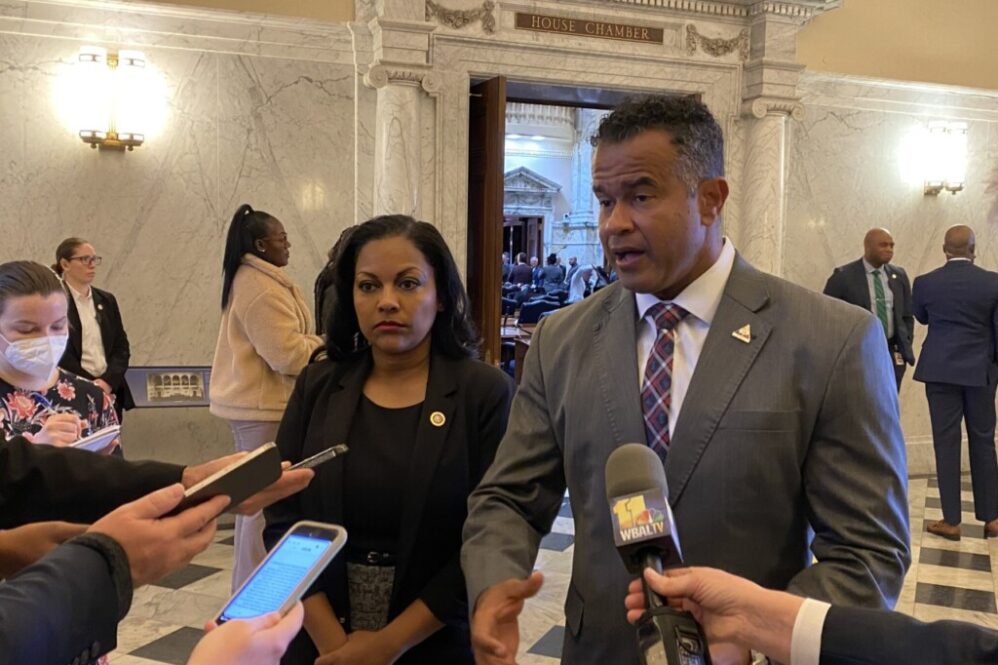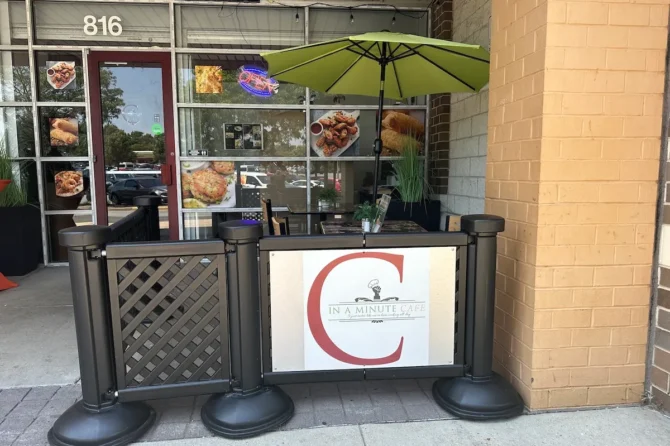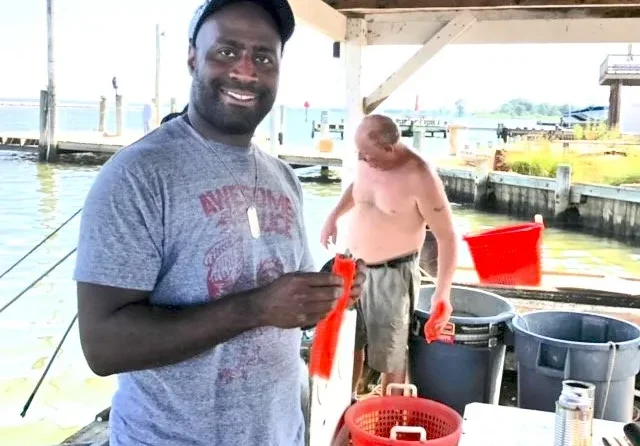MARYLAND MATTERS: The two lawmakers who are cosponsoring the Cannabis Reform bill in the Maryland House of Delegates and are responsible for shepherding it through the legislative straits were both opponents of legalizing the recreational use of marijuana.
Nevertheless, Del. C.T. Wilson (D-Charles), chair of the Economic Matters Committee, and Del. Vanessa Atterbeary (D-Howard), chair of Ways and Means, have dutifully bent to the will of the voters, who overwhelmingly approved legalization at the polls in November.
Before a reporter could finish a question Friday about the irony that the legislature is dependent on two people who, Wilson interjected, “That don’t like weed?”
He laughed.
“We believe in the concept of making it safer for Marylanders, of taking it out of the criminal stream of commerce,” he said. “Neither Delegate Atterbeary or I are consumers, but we do believe in that concept, and I believe overall it’s worth it. Plus, we listen to our citizens and they voted for it.”
For his part, Wilson said he did not vote for the measure in November, but knew it was going to pass.
“I don’t support marijuana; I support the effort we’re trying to undertake here,” he said. “It’s our job to make it the best bill we can and make it as equitable as we can.”
Atterbeary, too, had her reservations about the legalization idea.
“Having spent seven years on Judiciary [Committee], I have to say I didn’t necessarily support recreational use,” Atterbeary said at an impromptu briefing with reporters after the House session Friday.
“But one of the things that was incredibly important to me was the equity piece,” she said, underscoring the importance of one of the key provisions of the bill.
The 88-page emergency bill, introduced Friday in both the House and Senate, will establish the state’s regulatory and taxation framework for the burgeoning adult-use marijuana industry, once the sale and recreational use of cannabis become legal July 1, as per the measure approved by voters. The House bill will be heard in Economic Matters, before Wilson.
On the Senate side, the bill was sponsored by Sen. Brian J. Feldman (D-Montgomery), chair of the Education, Energy and the Environment Committee, and Sen. Antonio L. Hayes (D-Baltimore City), a member of the Finance Committee. It was sent to Finance and the Budget and Taxation Committee for consideration.
“I feel very good about the bill. I think it has a chance to be a national model,” said Senate President Bill Ferguson (D-Baltimore City).
“It’s a complex topic; there are a lot of different pieces,” Ferguson said. “No state has gotten it right, and so what I do believe we’ve done effectively here is put us on the path to, one, protect public health and having a regulated marketplace, where we have a real regulatory framework to ensure that the product that is being sold on the street is safe, and, two, open up and expand the marketplace in an equitable way.”
Wilson also said he did not view the legislation as the big moneymaker for the state that many people believed it would be, as a result of the taxes that could be placed on the sale of the cannabis.
“Not everything we do needs to make money,” he said. “If we do it right, we might lose a little money the first time, but we’ll save a lot of lives, we’ll keep a lot of people out of jail. That’s worth way more than any taxes we could collect.”
Wilson said he understands that the cost of cannabis should not be more than what is available on the street, or it defeats the purpose of the state’s offering a safer alternative.
“We’re not here to get Marylanders high, we’re not here to make money,” he said. “We’re here to make it safer in the streets so people aren’t dying and getting arrested.”
A criminal defense attorney, Wilson said four of the five homicide cases he is now handling “are weed related.”
“People get shot and murdered for this all the time,” he said. “You know why? Because marijuana moves quicker. Fentanyl, crack, these are niche drugs; you gotta go find your people.”
For cannabis, not so much.
“There so many people who smoke weed casually — so it’s valuable. You gotta take that incentive out. I want those casual smokers to go, Number One, where it’s going to be safe — they’re not going to get robbed — and the prices are affordable,” he said. “That’s how you diminish the market.”
The legislation provides for the state to tax the sale of cannabis at a rate of 6% initially — the same as Maryland’s sales tax — up to 10% in 2028. The sales would be taxed at the consumer level only.
The bill would establish a new regulation and enforcement division within the state’s current Alcohol and Tobacco Commission, which would be renamed the Alcohol, Tobacco and Cannabis Commission.
Legislators appear to have attempted to steer clear of the pitfalls of the process of legalizing medical marijuana, which was roundly criticized my some, particularly in the Black community.
A new Office of Social Equity in the cannabis division would be created to promote participation by “people from communities that have previously been disproportionately harmed by the war on drugs in order to positively impact those communities,” the bill reads.
That effort would include creation of both a Community Reinvestment and Repair Fund, to allocate money to the traditionally affected communities, and Cannabis Business Assistance Fund, to increase minority participation in the program.
“We cannot get this wrong, and I am certain we are going to continue to have conversations with the Senate as we move forward with this,” said Atterbeary, the chair of Ways and Means. “What we don’t want to do is what happened in medical [marijuana legalization], and what we don’t want to do is put minorities behind in this billion-dollar industry for years and years to come, because there will be no opportunity to catch up.”
The legislation provides for the issuance of a maximum number of standard licenses: 75 grower licenses, 100 processor licenses and 300 dispensary licenses.
It also includes a new category for so-called “micro licenses” that provides for issuance of a maximum of 100 grower licenses, 100 processor licenses and 200 dispensary licenses.
Under the provisions of the bill, micro growers would be restricted to 10,000 square feet; processors would be restricted to no more than 1,000 pounds of cannabis a year; and dispensaries could operate a delivery service that sells cannabis without a storefront and employs fewer than 10 workers.
The state also could issue up to 10 “incubator space” licenses for micro licensees and 15 on-site consumption licenses for individuals to smoke, vape or consume cannabis, the bill states.
Photo: House Economic Matters Committee Chair C.T. Wilson (D-Charles) and Ways and Means Committee Chair Vanessa Atterbeary (D-Howard) talk to reporters Friday about newly-introduced legislation to create a recreational cannabis industry in Maryland. Photo by William F. Zorzi.










